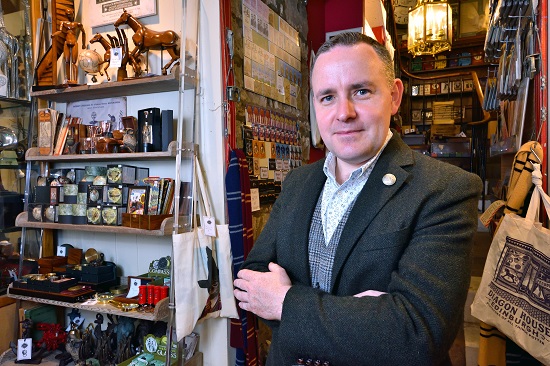FSB: Small businesses could close or radically change business model due to immigration changes
One in five small businesses could close or radically change their business model due to difficulties in recruiting EU workers, according to new research from the Federation of Small Businesses (FSB) in Scotland.

Andrew McRae, FSB Scotland policy chair
FSB’s new study, published today, also sets out a four-point plan to make the immigration system work for Scotland’s small businesses, including giving would-be migrants extra points if they want to work north of the border.
Outlining the distinct challenges that apply in Scotland, the report reveals that businesses in Scotland have found it harder to hire the right staff in the last twelve months. A total of 45%of small businesses in Scotland have faced recruitment challenges, compared to a UK average of 38%.
Andrew McRae, FSB’s Scotland policy chair, said: “There are now more than 100,000 EU workers in employment in cities, towns and villages across the country. Needless to say, the imminent introduction of a new way of hiring workers from outside the UK is a concerning prospect. Against a backdrop of weak economic growth, a buoyant labour market and an ageing population, it’s critical that we get the post-Brexit immigration system right. The tight timescales mean there’s no margin for error. Getting it wrong risks business closures.”
FSB’s research highlights that 19% of small businesses could close or radically change their business model if they struggle to recruit EU workers.
Other findings include the fact that 40% of Scottish small employers have at least one EU worker on the books – an increase of 14% since 2017. By comparison, the UK average is 26%, an increase of 5% over the same period.
The report recommends four steps to make the new system meet the needs of Scotland’s small businesses:
- Piloting a separate visa for remote parts of Scotland alongside other parts of the UK, as recommended by the Migration Advisory Committee, to help address distinct economic, geographic and demographic challenges.
- Allocating additional points for job seekers interested in working in Scotland, a common feature of points-based systems in countries such as Canada and Australia.
- Creating an additional route for migration in Scotland using the Scottish income tax code – a scheme which would be designed and operated by the Home Office.
- Reforming the Innovator visa, a scheme to attract entrepreneurs to the UK, by lowering the investment funds required to start a business in Scotland.
Mr Mcrae added: “At the moment, we’re concerned that the proposed immigration rules will make hiring more difficult and expensive. But this need not be the case. This four point-plan could help take the sting out of dealing with the new immigration set-up. It should not be beyond us to make the new system accommodate the distinct economic and demographic needs of Scotland.”
Ramona Obafemi, born in Romania, runs the Highlander Café in Aberdeen. On the prospect of a new immigration system, she said: “I own an award-winning cafe based on Aberdeen beach with a mixture of European nationals (4) and UK nationals (2) working in our team. It is very important for my business to be able to continue to hire the best person for the job – and more often than not that’s applicants from foreign backgrounds.”
Nina Falk, born in Sweden, runs Kalopsia Collective in Edinburgh with her partner Adam Robertson. She commented: “We found Edinburgh and Scotland in general to be a very positive and friendly environment to set up a business – with a good community of small and medium businesses and a good support network. The UK Government’s new Innovator Visa will cut off so many amazing businesses and people, especially those from niche sectors or young people.”







